The French Revolution: The violent dawn of liberty, equality, and fraternity
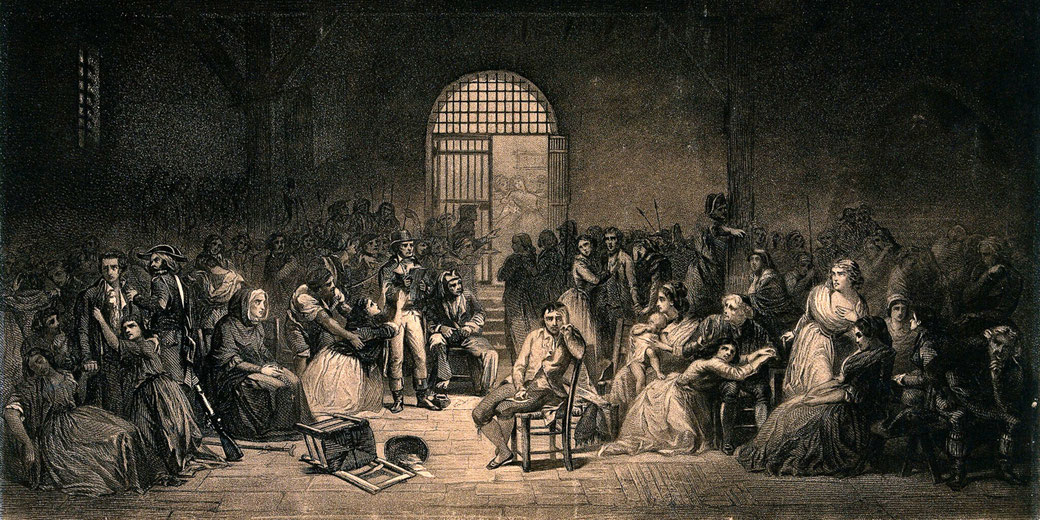
The French Revolution is one of the most significant events in modern history. In fact, many historians mark the beginning of the modern history period with the start of this event in 1789.
The ideas and systems birthed during the revolution had a profound and long-term impact on the creation of the contemporary world.
The French Revolution brought about a transformative change in France, transitioning it from an absolute monarchy to a republic with varying forms of government over a tumultuous period.
This upheaval led to the rewriting of many ancient traditions, laws, and cultural norms.
Causes of the revolution
In the years preceding the revolution, France was grappling with a severe financial crisis.
The French monarchy had spent a significant amount of money supporting the American colonies in their fight for independence from Britain during the American War of Independence.
The reigning king, Louis XVI, explored various strategies to alleviate the financial burden.
However, none of these measures were effective, and as the population grappled with scarcity and hardship, discontent and the likelihood of rebellion grew.
In a desperate move, Louis XVI convened a meeting of the 'Estates General' on the 5th of May 1789.
The Estates General comprised representatives from the three major social groups in French society: the clergy, the nobility, and the commoners.
By bringing these three groups together, Louis XVI hoped to expedite the approval of new taxes to alleviate his financial woes.
However, an inherent power imbalance existed in the Estates General. The commoners, known as the 'Third Estate', represented the vast majority of French society, yet they only had one-third of the voting power.
The other two 'estates' - the clergy and the nobility - represented a small, yet affluent, segment of French society and together held two-thirds of the vote.
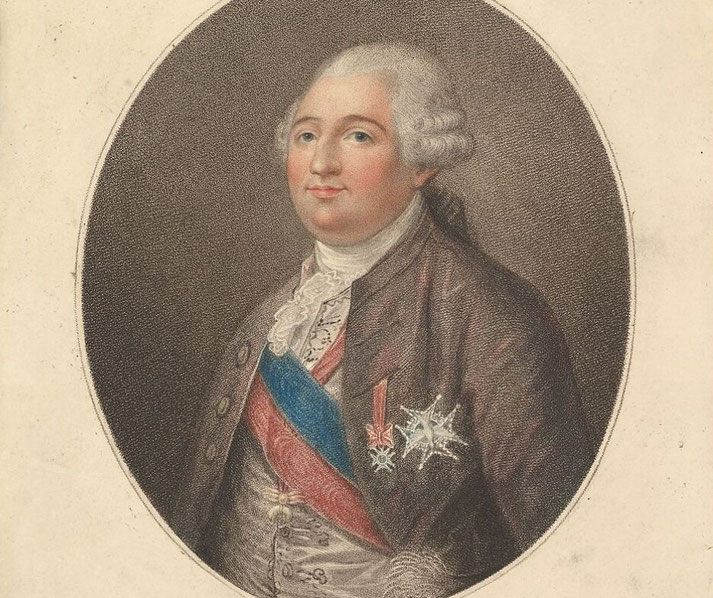
The revolution begins
The king urged a swift resolution to prevent France's financial collapse, but heated debates erupted about the systemic inequality in French society.
The Third Estate insisted on a restructuring of French society before accepting new taxes, which was firmly opposed by the other two estates, leading to a stalemate.
In response, representatives of the Third Estate formed a new political group in June 1789, called the 'National Assembly', and vowed not to pay any further taxes until a new constitution was established.
This pledge, known as the 'Tennis Court Oath', signified their determination not to disband until their objectives were achieved.
Recognizing the shift in power, King Louis XVI acknowledged the National Assembly.
The Assembly then embarked on the task of writing a new social system that abolished the old one, creating a document known as the 'Constitution', and forming a second new political group called the 'Legislative Assembly'.
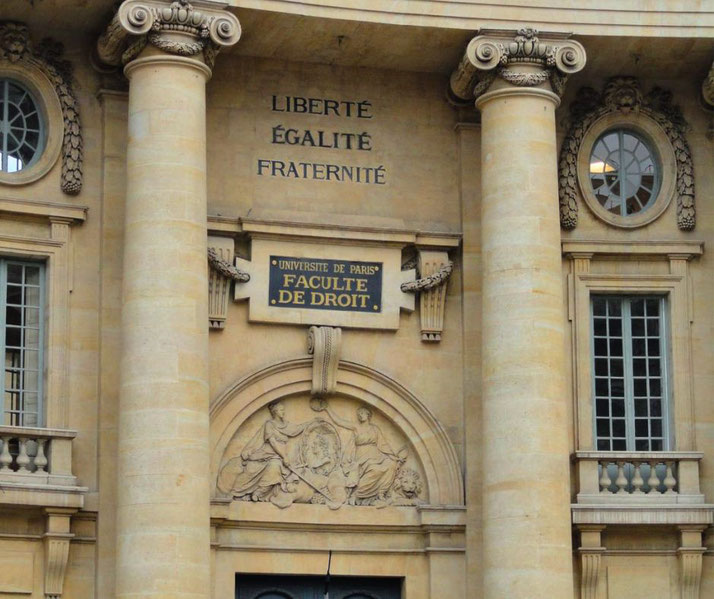
Storming of the Bastille
On July 14, 1789, an outraged crowd of Parisians, driven by the harsh economic conditions and the symbol of royal tyranny that the Bastille represented, stormed the fortress-prison in a defining moment of revolt.
The Bastille was known for its large caches of weapons and gunpowder but was more notorious for holding political prisoners jailed by royal decree, without trial.
At the time, the Bastille held only seven people, most of whom were not political prisoners.
The crowd, initially demanding the release of the prisoners and the surrender of the ammunition, was met with resistance from the prison's small defensive force.
The standoff escalated into violence and the crowd eventually overwhelmed the Bastille's defenses.
The prison's governor, Bernard-René de Launay, was captured and killed, and the seven prisoners were released.
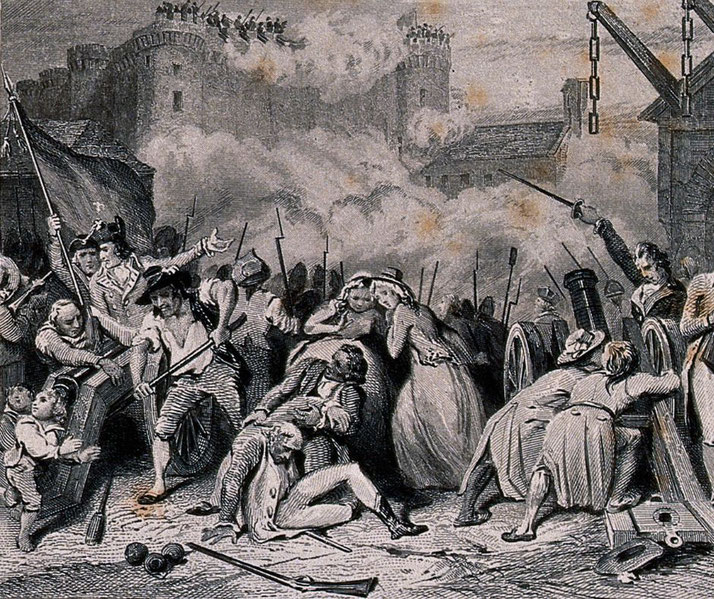
The capture of the Bastille by the revolutionaries strengthened the Assembly's position, as the popular uprising openly supported the Assembly.
As a result, it emboldened the Assembly to take more decisive action against the king and the aristocracy.
Following the storming, the Assembly adopted several important measures, including abolishing privileges of the nobility.
Ultimately, however, it helped transformed the Assembly from a deliberative body into a revolutionary government with popular support.
Bloodshed
The National Assembly completed the first French Constitution in 1791, which led to the creation of the Legislative Assembly as the new legislative body, replacing the National Assembly.
This was seen as a great success for the poor people of France. Unfortunately, those figures now in power did not seem to have followed through with their promises and, instead, began bickering with each other for power.
Then, in 1792, a second wave of the revolution occurred. One of the he radical political groups, known as the Jacobins, played a key role in dramatic dissolution of the Legislative Assembly and replaced it with a new 'National Convention'.
This finally marked the end of the French monarchy, with France declared a republic.
The following year, in 1793, King Louis XVI was publicly executed.
The execution of a king alarmed the rest of Europe, where monarchies were the norm, and stirred fears of similar revolutions.
In response to these developments, France, which had already declared war on Austria in April 1792, found itself in conflict with several other European monarchies.
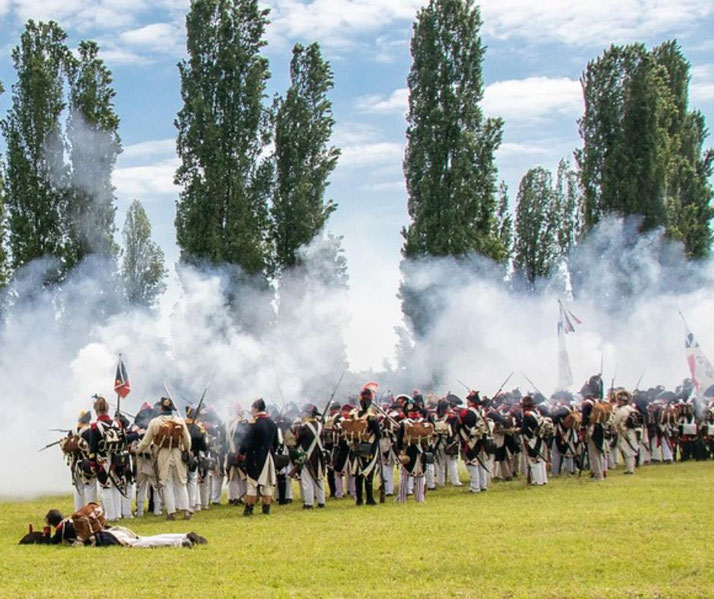
As the fighting between the different political groups grew, the common people became increasingly critical of the Convention and its failure to respond to their needs.
To address the growing unrest, the National Convention established the Committee of Public Safety in 1793.
The Committee was tasked with maintaining order and loyalty to the republic.
Those deemed disloyal were publicly executed by guillotine. However, this period, known as 'The Terror', saw over 16,000 people lose their lives in a wave of paranoia about loyalty to the revolution.
By 1794, following the execution of Robespierre, the most notorious leader of the Committee of Public Safety, there was another shift in political power.
The Reign of Terror ended, and in the aftermath, a new constitution was created in 1795, leading to a new form of government.
A group called the Directory, made up of five men, was established to oversee operations.
However, these men manipulated each election, enabling them to maintain their positions of power.
This status quo persisted until a popular French military general, Napoleon Bonaparte, staged a coup in 1799, overthrowing the Directory and establishing a new government known as the Consulate.
Under Napoleon's new government, power was nominally shared between three 'consuls'.
However, as the First Consul, Napoleon wielded the majority of the power. This was formalized in 1802 when he was made Consul for Life, and further in 1804 when he declared himself Emperor.
In 1804, Napoleon effectively brought an end to the French Republic by crowning himself Emperor of France.
In doing so, he restored a form of monarchy, which marked a significant turning point in French history.
As a result, many historians often consider this event to mark the end of the French Revolution.
However, it's important to note that this is not a universally accepted demarcation.
The French Revolution brought about many long-term changes to French society and government that continued to evolve even after Napoleon's rise to power.
The revolution's legacy is its profound and lasting impact on France and indeed, the world, as it fundamentally challenged and transformed traditional social and political structures.
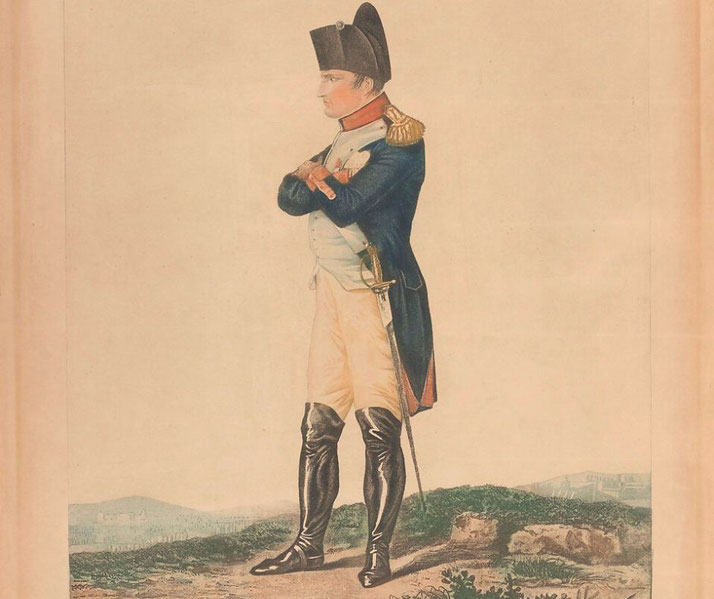
Further reading
What do you need help with?
Download ready-to-use digital learning resources
Copyright © History Skills 2014-2025.
Contact via email
With the exception of links to external sites, some historical sources and extracts from specific publications, all content on this website is copyrighted by History Skills. This content may not be copied, republished or redistributed without written permission from the website creator. Please use the Contact page to obtain relevant permission.





